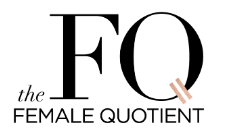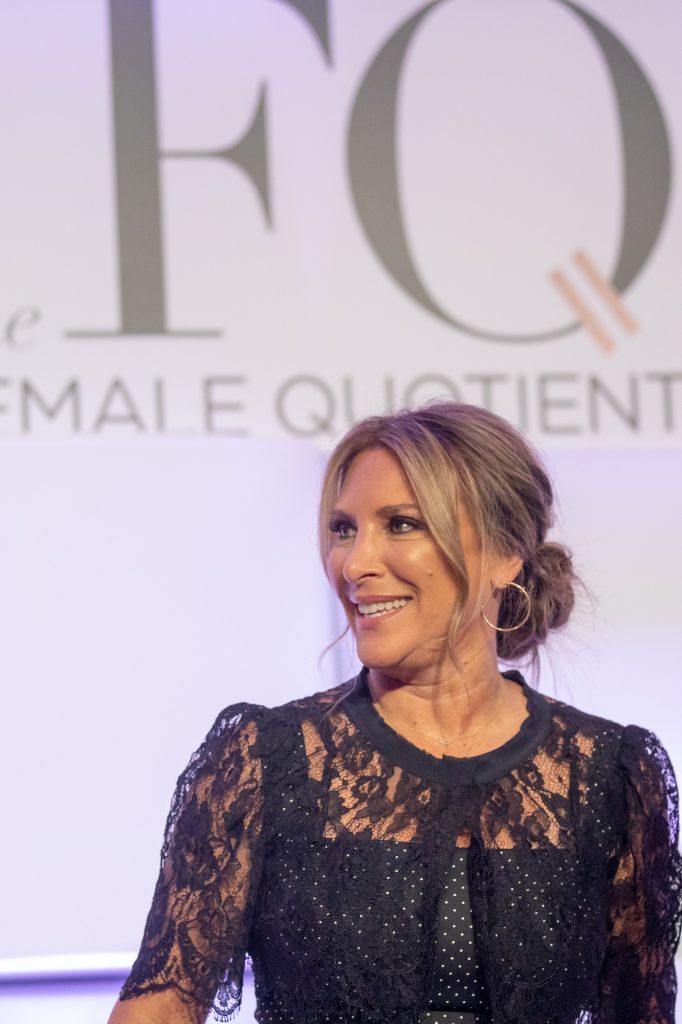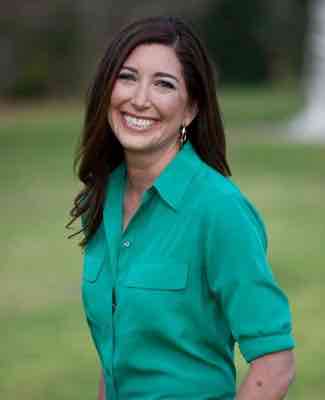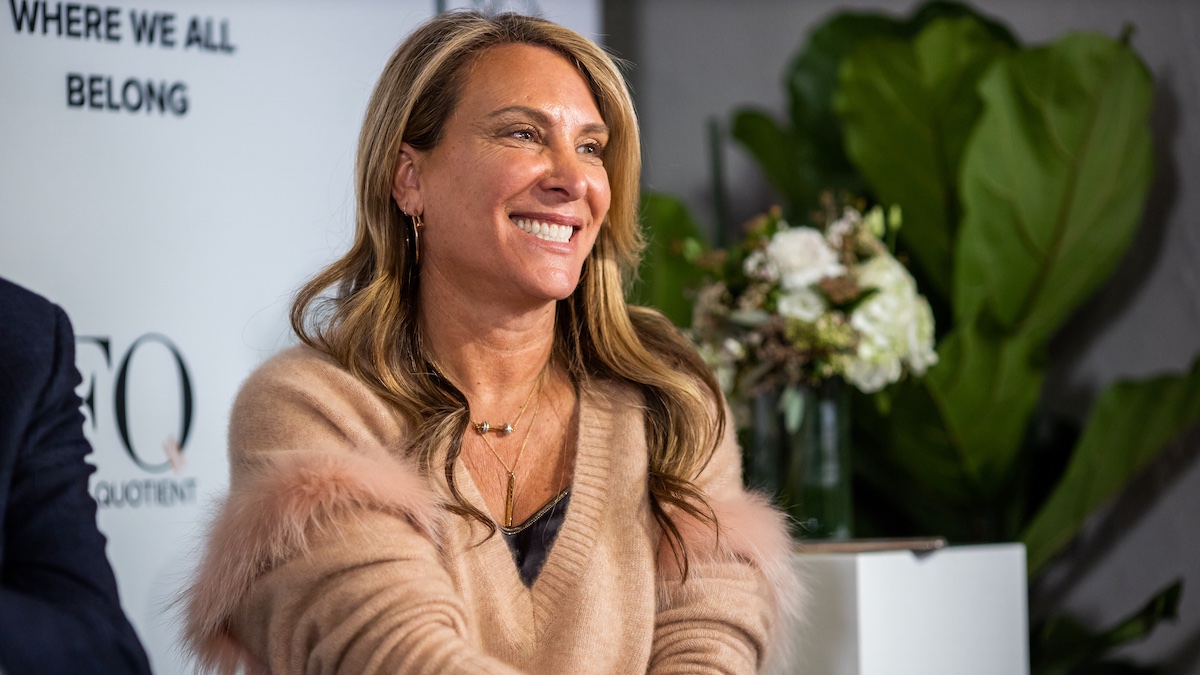When we “Advance Women, we Advance Equality.” I had the honor of speaking with founder, Shelley Zalis, about how she created a movement from a moment.
Lisa Niver:
Hello. I’m so excited to be here today with one of the most incredible women who’s making global change. Shelley Zalis, thank you so much for being here with me.
Shelley Zalis:
Are you kidding, Lisa? I just am so grateful for being in your circle. You tell such incredible stories, you bring visibility to remarkable women all over the globe, and the impact that you are making is outstanding, so I’m all in with you. Whatever you want the answer’s always yes.
Lisa Niver:
For people that aren’t familiar with The Female Quotient, one of my favorite things is first there was IQ with the intellect, then there was EQ with the emotions, but then you created the FQ. How did this come together for you?

Shelley Zalis:
When The Female Quotient was born, we started as a moment, we turned it into a movement, and now it’s a business so I am now in the business of equality. It all really came from my heart so I talk a lot about heartbeat moments.
When I wanted to go to CES, the Consumer Electronics Show, which was in Las Vegas, it’s 150 thousand people, less than 3 percent women, and even for me as the CEO of a successful research company, I still was intimidated. I had a choice to make. Do I not go because it was scary and uncomfortable, or do I do what I did? Call a few girlfriends and invite them to go with me, and that is really how The Female Quotient was born.
I invited four girlfriends, told them to invite their girlfriends, 24 hours later 50 women showed up and two remarkable things happened. One, every guy’s head turned, like where the heck did all you women come from which is what I call a power of the pack moment. A woman alone is power, collectively we have impact, or a woman alone is invisible, together we’re visible.
And the second thing was, I was surrounded by women that had some of the same challenges. Work/life balance, perfection, imposter syndrome, how do you become visible with your strengths that have typically been invisible strengths, the soft power, the feminine powers? And next thing you knew you know, 50 turned into 350 to 3 thousand to now we’ve created the largest global community of women in the workplace, 50 thousand plus plus, and that really is how The Female Quotient was born. First came IQ, the intelligence quotient, then came EQ, the emotional quotient, now comes FQ, the female quotient. When you add more women to any equation there’s a return on equality. And so we’re all about changing the equation and flipping the script and flipping the power.
Lisa Niver:
It’s really been incredible for me to be in some of those lounges and see the power of women collectively. I’ve been with you at AdWeek in New York, at events together in Los Angeles, you’re in Davos, at CES and with the equality lounges you’ve never missed a beat, you went virtual, now you’re hybrid, COVID could not keep you down.
Tell us about your new project with the Global Pack dinners.
Shelley Zalis:
We thought, what if we could unite the world to the power of women in a hundred countries? We want to bring everyone together, and with COVID using virtual we could participate in a dinner in Rwanda on Tuesday and India on Thursday and Islamabad the following week and Saudi Arabia and Kenya while sitting in my office here connecting women.
Three months ago we launched the Global Pack Dinners and it’s a pay it forward multiplier effect dinner party. So, we decided to take the world, six regions, ten countries per region. If we could have 25 hosts per country at the end of the country dinner those 25 pay it forward to 10, so 25 times 10, 250 women per country. Two hundred fifty women times 10 countries, 25 hundred women per region. Twenty-five hundred women times 10 after the regional dinner, 25 thousand. Twenty-five thousand times 6, 150 thousand. This is how we create an equitable table where everyone is seen, everyone is heard, everyone has the power to make a difference and to pay it forward.
We have held over 32 dinner parties already. We will focus our Asia dinner around Tokyo, around the Olympics, and then we will have the annual 150-thousand-person dinner party which will be first of its kind, the largest ever dinner party with women in the workplace.

Lisa Niver:
It is all about relationships and connection. What is the update about your project on college campuses, the Next Gen? What’s happening right now because obviously college campuses have been greatly impacted by COVID?
Shelley Zalis:
We believe Next Gen Is the now generation and leadership is not about age, it’s about action. This is the first time in history we actually have five generations in the workplace. We all learn from each other and that’s why we call it mentorship in the moment. It’s not about wisdom from the top down or bottom up, it’s sharing the knowledge all around because we learn bits and bites from everybody, and so the next generation is part of everything we do.
We are not doing physical popups on campus obviously because of COVID, just like we’re not doing physical popup lounges at conferences, but we are integrating Next Gen in our panels, thought leadership, they’re moderating so they’re holding the mic, they are also interstitials in between panels and we have FQ correspondents where they are sending in content from everywhere.
Their opinion matters, their perspective matters, their voices matter. We connect Next Gen with middle management which we call the messy middle, and the messy middle with leadership forward which is you know, senior leaders, and we are all growing together as one big community of women supporting other women in the workplace.
Lisa Niver:
I know you have staggering statistics about how much better businesses do when they include women and the equality calculator. Can you talk about the “P’s”: parity, policy, pipeline and people.
Shelley Zalis:
It takes two things to truly change the equation for women in the workplace.
One is the community, women supporting other women, and the other is closing the gaps and we have a lot of equity gaps. Parity, pay gap, right? And we know that women on average make 82 cents on the dollar, black women 64 cents on the dollar, Latinas 53 cents on the dollar. I would say equality is a choice, unconscious bias is an excuse. If you say unconscious bias, you’re conscious.
Once I just told you what the gap is……then close it. We’ve built an advancing equality calculator with Citi and work with corporations to close the gap.
The second is policies. How do we attract and retain our best talent and not just our available talent because we’ve also seen especially in COVID a lot of women opting out, not even furloughed, job reduction and salary reduction, but opting out because of their caregiving responsibilities, they can’t do it.
And then the third, pipeline. It’s not just filling the pipeline with diversity but it’s the pathway to leadership. How do we ensure that we are upscaling and retaining you know, truly our talent past the messy middle?
And then the fourth is people and the upscaling that we need, and not just women in the workplace but also women in marginalized and underserved parts of the world. I mean, internet access, giving people the tools, they need not only for equal opportunity but for equitable positioning, to give people you know, the equal footing to be able to successfully navigate the workplace.
We also do boot camps to help companies become equality fit, to be conscious now of their unconscious that starts with awareness, then education, and what we do a lot of work on is the actions that you can take, and they’re not three-year plans. There’s immediate actions that you can take that’ll go a long way to closing the gaps and driving change.

Lisa Niver:
One thing I know you’re also working on with the FQ collection is related to the sustainable developmental goals and goal number five about equality, and I remember at one conference you spoke about a young woman who you met and then you flew her to an event and she introduced you when you got a major award.
Shelley Zalis:
That’s giving me shivers. So, back to our collection. You know, a lot of people talk about ROI, Return On Investment. We are all about ROI, return on impact and impacting change, and for me that is leaving a living legacy of change, and so 20 percent of everything we do goes to making a difference in the world and helping girls around the world from education to the digital divide, the care economy, economic empowerment, up skilling, financial literacy you know, all the thing that girls need to truly make a difference.
When I went to the Africa regional WEF, World Economic Forum, in Rwanda, I was able to visit schools. We drove five hours on muddy roads. And I have to say that… a moment of mentorship led to a lifetime of impact for me and for these girls. I met 500 girls of different ages, at different schools that touched my heart in ways I can’t even express. I brought 10 girls to the World Economic Forum for our equality lunch with the women of Africa, the most powerful women from the World Economic Forum.
To wrap the day a young girl, she was 13 at the time, her name is Amen, got up. She looked at the room of these women and she said, “Ladies, let me tell you something. You changed my life here forever. You made me realize that my voice is as important if not more important than the boys and that it is my responsibility to go back to school and share what I felt from each and every one of you today so that I can pay it forward to all the other girls that can’t be here.”
Several years later, Amen came to New York City to give me the Matrix award. She was nervous so I said to her, “Amen, do you want me to go up with you and I’ll hold your hand while you give me the award?” And she said no, I can do this. She gets up and to tell you, Lisa, she with this booming presence spoke to a thousand powerful people in the room with command of the audience, with confidence oozing out of every part of her, and with a message that was so poignantly heart-felt and real and beautiful.
I decide whatever my speech was, was not what I was feeling in that moment. I get up and I’m shaking and she gives me the award and she feels me shaking. She looks at me and she says, “Do you want me to stay up here with you and hold your hand?”
In that moment, talk about heartbeat, to understand the impact we can have on someone and someone can have on you and that’s why I say if I can change one life I feel like what I’m doing today is meaningful.
It was a magical moment and something that has inspired me to keep going, to keep doing, to keep being, to keep learning, to keep being open to these remarkable people that come into my life, and that’s that.
Lisa Niver:
Shelley, that story is a great example of this community you’ve created. The connection starts one person at a time and you’ve been able to create this revolution with the dinners and the lounges and the way that you make sure nobody feels alone.

Shelley Zalis:
At our lounges, we don’t have badges. I want people to discover one another. I want people to welcome one another. I want everyone to feel comfortable and know that they belong.
Lisa Niver:
In the latest news from The Female Quotient, you have projects with women veterans and women in the sports summit in Cleveland and Mother’s Day and feminist Father’s Day and there’s no industry I can think of where you’re not in.
Shelley Zalis:
Because we started with the Girl’s Lounge at the World Economic Forum and we evolved to the Equality Lounge because we’ve already done a good job connecting women with other women. The Equality Lounge is all about closing the gaps.
The World Economic Forum has less than 17 percent of their members are women. We now bring 50 women with us so when you walk on the street in Davos now you see women. We just flip the script and change the equation by choice.
Lisa Niver:
I speak for many women around the world that we’re very happy you’re advancing equality and closing the gaps. Shelley, it has been my honor to speak to you today. You’re so inspiring. Before you leave us, if people want to participate what’s the best way to get involved with The Female Quotient and the Equality Lounges?
Shelley Zalis:
Thank you so much. Go on the website, thefemalequotient, sign up to get invitations to everything that we do.
We go further, we go faster when we go together. This is about all of us working, supporting, and holding ourselves responsible and accountable for creating the changes that we want to see in the world today.
Lisa Niver:
I really appreciate your leadership and thank you so much for speaking with me today.
Shelley Zalis:
And I appreciate all that you do to tell the stories, to share the stories, to amplify the stories and to use your voice for change, so thank you, Lisa, for all that you do. You are remarkable.


